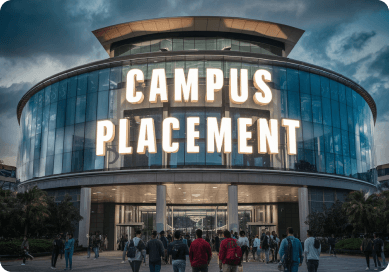Enter OTP



Tbilisi, Georgia

Tbilisi, Georgia

Cost Of Living

Undergraduate Fees International Students

Post Graduate Fees International Students

Tbilisi State University stands out as the oldest university in Georgia and the Caucasus, blending deep academic tradition with modern research. With six diverse faculties and a dedicated School of Economics, it offers a wide range of programs across disciplines. Its 60+ research labs, scientific library, and publishing house make it a hub of knowledge creation. The spread-out urban campus reflects its deep integration into Tbilisi’s cultural and academic life. TSU’s global recognition, including a U.S. News ranking of 359th, underlines its academic strength. Its legacy is further enriched by influential alumni who’ve shaped Georgia’s intellectual landscape.
Ivane Javakhishvili (1876–1940) was not only one of Georgia’s most eminent historians and linguists but also the fou... View More
Ivane Javakhishvili (1876–1940) was not only one of Georgia’s most eminent historians and linguists but also the founding father of the university. He authored over 170 works, including the monumental A History of the Georgian Nation, which remains a cornerstone of Georgian historical scholarship. After studying in St. Petersburg and Berlin, he led TSU as its rector from 1919 to 1926. His vision shaped the university’s academic mission, and he later headed the Georgian National Museum until his death. Today he rests in the university’s Pantheon, a testament to his enduring legacy View Less
Petre Melikishvili (1850–1927) served as the university’s first rector, appointed in January 1918. A pioneering chem... View More
Petre Melikishvili (1850–1927) served as the university’s first rector, appointed in January 1918. A pioneering chemist, he established TSU’s chemistry laboratory and led the departments of organic and inorganic chemistry. Melikishvili taught pro bono in TSU’s early years, helping the fledgling institution gain academic legitimacy. Under his leadership, TSU laid the groundwork for its scientific training and research culture. He is commemorated at TSU’s Pantheon among its founding scholars View Less
Akaki Shanidze (1887–1987) was a linguist and philologist who helped build Georgia’s foundations in language studies... View More
Akaki Shanidze (1887–1987) was a linguist and philologist who helped build Georgia’s foundations in language studies. He co‑founded TSU, chaired multiple language departments, and pioneered Georgian dialectology, textology, and biblical studies. Shanidze created much of Georgian grammatical terminology and helped build the university’s library. Recognized as a Georgian Academy of Sciences academician, he taught for decades and is buried in the university’s Pantheon, a mark of his lifelong commitment View Less
Dimitri Uznadze (1886–1950) was a philosopher and psychologist who co-founded TSU and launched Georgia’s tradition o... View More
Dimitri Uznadze (1886–1950) was a philosopher and psychologist who co-founded TSU and launched Georgia’s tradition of modern psychology and pedagogy. He developed the Georgian School of Psychology and wrote the country’s first world-history textbook for secondary schools. Uznadze held leadership roles at TSU, helped found the Georgian National Academy of Sciences, and taught modern educational methods. His impact on Georgian academic culture extends beyond the university into national education systems View Less
Viktor Kupradze (1903–1985) was a mathematician who rose to become vice‑rector and later rector of TSU. He authored ... View More
Viktor Kupradze (1903–1985) was a mathematician who rose to become vice‑rector and later rector of TSU. He authored groundbreaking work in elasticity, mathematical physics, and integral equations, publishing over 100 papers including five monographs. Kupradze led research during his tenure and served as Georgia’s Minister of Education (1944–1953). Decorated with the Order of Lenin twice, he left a legacy of scientific rigor and academic leadership at TSU View Less
David Ukleba (1919–1999) was a Georgian geographer and professor at TSU. He earned his doctorate in 1971 and was desig... View More
David Ukleba (1919–1999) was a Georgian geographer and professor at TSU. He earned his doctorate in 1971 and was designated Honored Scientist of the Georgian SSR in 1984. Ukleba created the foundation for landscape science in Georgia, leading the Departments of Landscape Study and Physical Geography at the Institute of Geography. His pioneering work in physical geography shaped TSU’s geography curriculum and Georgian scientific research in the field View Less
Nodar Khaduri (1970–2019) graduated from TSU with a degree in macroeconomics in 1996. He later lectured at the univers... View More
Nodar Khaduri (1970–2019) graduated from TSU with a degree in macroeconomics in 1996. He later lectured at the university and rose in Georgia’s Ministry of Finance to become Minister of Finance from 2012 to 2016. He also worked with the UN Development Programme. Khaduri bridged academic economics and public policy, bringing scholarship into governance. Around sixty percent of TSU grads, like him, translate their university training into impactful careers View Less
Levan Mikeladze (1957–2009) was a diplomat and TSU alumnus who studied economic and social geography. He served as Geo... View More
Levan Mikeladze (1957–2009) was a diplomat and TSU alumnus who studied economic and social geography. He served as Georgia’s ambassador to Austria, the United States, and Switzerland during transformational years (1996–2007). He also worked with OSCE and influenced Georgia’s international relations. Mikeladze earned doctoral-level training including at Stanford, and represented TSU’s global influence across diplomacy and geography academia View Less
Zviad Gamsakhurdia (1939–1993) taught English literature and American studies at TSU before becoming a leading disside... View More
Zviad Gamsakhurdia (1939–1993) taught English literature and American studies at TSU before becoming a leading dissident and the first democratically elected President of Georgia in 1991. A literary critic, human rights activist and philologist, his academic and political journey reflects the university’s role in nurturing civic leadership. Gamsakhurdia’s presidency, though brief, symbolized TSU’s influence beyond scholarship into national transformation View Less
Irakli Garibashvili (born 1982) studied at TSU before entering politics. He became Prime Minister of Georgia twice—fir... View More
Irakli Garibashvili (born 1982) studied at TSU before entering politics. He became Prime Minister of Georgia twice—first from 2013 to 2015, and again from 2021 until January 2024—and is now chair of the ruling Georgian Dream party. Known for blending business acumen with governance, Garibashvili applied his academic foundation from TSU in economics and public policy to real-world leadership. His career showcases how TSU shapes both public servants and policymakers View Less
Tbilisi State University boasts a well-equipped, modern infrastructure that blends historical architecture with contemporary academic needs. Its central campus houses state-of-the-art lecture halls, research labs, and one of the largest libraries in Georgia. Facilities like smart classrooms, computer centers, and high-speed internet access ensure a tech-enabled learning experience. Students benefit from amenities such as a sports complex, medical service center, and cafeterias across different buildings. The university also supports innovation through dedicated research institutes and incubator spaces. With its strategic location in Tbilisi, the campus is easily accessible and offers a vibrant academic environment at the heart of the city.
Tbilisi State University student life pulses with energy and variety across its spread-out city campuses. Clubs and societies—from debate and journalism to the arts and volunteer groups—keep students engaged beyond the classroom. Cultural events, exhibitions, and literary readings draw young minds into Georgia’s rich heritage. Sports teams, fitness facilities, and intramural leagues build camaraderie and well-being. International student bodies bring global perspectives through social meetups, language cafés, and travel excursions. What this really means is TSU students don’t just attend lectures—they explore identities, friendships, and purpose.


TSU’s Student Service and Career Development Center delivers robust support for students and alumni, helping match skills and aspirations to real job opportunities. It runs frequent workshops—covering CV writing, interviews, cover letters—and organizes career fairs on campus where over 300 employers participate. A strategic partnership with Georgia’s Employment Agency connects vocational students with thousands of job vacancies and offers résumé-building assistance and access to a national employer database. Through the TEMPUS-funded CASEDE project, TSU developed structured career education services, including guides, tools, and trained staff—all aimed at improving graduate employability. Reported employment rates hover around 90 percent, a testament to the Center’s efficiency. At the same time, the Service helps integrate vulnerable and international students, supports student-led projects, and maintains ties with alumni for networking and mentorship.
The below information is required while
completing the university application :
Documents international or foreign-educated applicants need for applying to a Bachelor’s (first-cycle) program at Tbilisi State University:
Notarized copy of general secondary education certificate
This is your high school diploma or equivalent, officially translated into Georgian (if in another language), and notarized to confirm authenticity.
Copy of passport or citizenship document
A clear photocopy of your passport or national ID, translated into Georgian (if needed) and notarized; originals must be shown during verification.
Application form
The official TSU application form, completed and signed. Typically submitted digitally via email or an online portal.
Documentation showing you passed Math and English at school level—this may include transcripts or course certificates
Passport-style photos
Two 3×4 cm photos (often submitted digitally on CD or as image files).
Military service documentation (for male applicants)
A document certifying military status or enrolment, where required.
Under?18 candidate parental authorization
If the applicant is a minor, a notarized birth certificate and a copy of the parent’s ID are needed; plus an official parent’s consent letter if required.
What this means in practice:
You’ll need your high school certificate translated/notarized into Georgian and scanned to PDF.
Know more
Tbilisi State University doesn’t follow the typical campus placement model, but it actively supports student employability through its Career Development Center. Regular career and employment forums are held, connecting students directly with over 300 public and private organizations. The university posts dozens of job and internship opportunities every week and conducts training in CV writing, interview prep, and communication skills. These efforts ensure students are not only job-ready but also aware of real-time industry expectations. Around 60% of TSU graduates secure employment in their field, matching European benchmarks. For specialized programs like engineering, additional recruitment events are organized with international partners.


Here’s the thing—TSU’s achievements reflect its legacy and impact. As the oldest university in Georgia and the Caucasus, it’s a pioneer in the region’s higher education. Ranking 359th globally by U.S. News, it stands shoulder-to-shoulder with top international institutions. Over 18,000 students engage in education under the guidance of 5,000 faculty and staff—a testament to scale and expertise. With 60 research labs, multiple museums, and its own publishing house, TSU contributes significantly to scholarship and culture. Its autonomous International School of Economics is recognized for rigorous graduate training. Notable alumni like Ilia Abuladze, Giuli Alasania, and Givi Alkhazishvili have shaped Georgia’s intellectual and cultural life—proof that TSU breeds leaders.


In June 2021, TSU earned FIBAA accreditation (a German-based international body) for select economics and public administration programs. This validation reflects a curriculum aligned with European standards, enhances TSU’s attractiveness to international students, and underscores its commitment to global-quality business education
By March 2020, TSU had climbed to 322nd globally in the U.S. News Best Global Universities ranking, positioning it among the top 350 institutions worldwide. That rise signaled stronger research output, citation impact, and international collaboration, confirming TSU’s growing competitiveness on the global academic stage
In September 2020, TSU’s electrical engineering and computer science bachelor's programs earned ABET accreditation, becoming the first in Georgia to do so. This accreditation from a leading U.S. agency ensures international recognition, signaling that TSU’s technical education meets rigorous global quality standards—opening pathways for graduates in engineering fields worldwide
TSU's 100th anniversary in 2018 was celebrated under UNESCO’s auspices—recognizing the institution's cultural and educational importance. It marked a century of uninterrupted national scholarship, research, and civic leadership. The centennial events, attended by Georgian officials and international guests, reinforced TSU’s symbolic role in Georgian identity and its international heritage
TSU broke regional barriers by entering Times Higher Education’s Europe Top 400 list in 2016–17, at 301st place. It was the only Caucasus institution on that list, highlighting its academic visibility beyond Georgia. This recognition bolstered TSU’s profile in global ranking systems and demonstrated that it could compete with established European universities despite financial and structural constraints.
In 2015, Webometrics ranked TSU as the number‑one university in Georgia and the Caucasus, placing it in the top ~16.7% of around 12,000 global institutions assessed. The ranking metrics included web presence, impact, openness, and academic excellence—an achievement that reflected TSU’s expanding digital footprint, research dissemination, and growing scholarly influence
In recent years TSU’s Materials Research Institute adopted an interdisciplinary “convergence” approach—merging natural sciences, engineering, and computer technology to tackle complex future challenges. This institutional innovation fuels high-impact research, startup spin-offs, and applied science. It showcases TSU’s shift from classical scholarship to solution‑driven, innovation-led research ecosystems
In 1989, TSU was officially renamed after its founder, Ivane Javakhishvili, emphasizing his foundational role in Georgian intellectual life. This renaming is more than symbolic—it reaffirmed the university’s dedication to academic integrity, national history, and humanistic values just before Georgia regained full independence. By embedding Javakhishvili’s legacy in its official title, TSU formally honored its roots while signaling a renewed post-Soviet scholarly mission.
From its first partnership in the 1960s and formal student mobility starting in the 1970s, TSU built over 200 international institutional partnerships across 56+ countries. It actively engaged in Erasmus, Jean Monnet, Erasmus Mundus, and capacity‑building projects. This achievement speaks to TSU’s long‑standing internationalization strategy and commitment to global academic collaboration
In 1918, Ivane Javakhishvili and a group of Georgian scholars founded the first national university in the Caucasus. Opening on January 26 (February 8 new style), it marked both the birth of TSU and Georgia’s first democratic republic. From that day, Georgian became the language of instruction—unique in the former Russian Empire. This achievement laid the cornerstone for modern higher education in Georgia, creating an institution rooted in national identity and academic ambition—and remains the university’s most profound milestone
Tbilisi State University stands at the crossroads of tradition and innovation, driving research across 60 scientific laboratories and centers. Its diverse faculties—from Exact and Natural Sciences to Medicine and Economics—fuel interdisciplinary projects and graduate-led inquiry. With publishing facilities and a scientific library on campus, TSU fosters a vibrant knowledge ecosystem. The International School of Economics operates as an autonomous hub for advanced economic studies and policy work. Spread across Tbilisi and backed by regional branches, the university’s infrastructure enables collaboration and access to cutting-edge resources. What this really means is TSU isn’t just preserving academic heritage—it’s pushing forward new discoveries, creative thinking, and tangible impact.
An extraction method and device to isolate biologically active compounds from plant materials using non‑traditional technology was registered with Georgia’s intellectual property office in 2017. It reflects TSU scientists’ contribution to biotech and pharmaceutical processing
This algorithmic breakthrough in matrix spectral factorization was developed by Gigla Janashia alongside collaborators, originally from TSU. Patented by the U.S. in 2016, it offers robust non‑parametric Granger Causality estimation and improved over earlier Wilson’s algorithm. Its applications span neuroscience, economics, control systems, and wireless communications. Originally conceived in the early 2010s, the method was rigorously formalized and patented in 2016, highlighting TSU’s contribution to computational mathematics and signal processing
The Institute of Applied Semiconductor Technologies at TSU led development of novel solar cell concentrators designed to boost photovoltaic efficiency. These systems, researched under Dr. Zaur Chakhnakia and team, reflect TSU’s push toward renewable energy technology and materials engineering innovation
Also from the same institute, researchers created gallium-arsenide epitaxial films capable of generating terahertz radiation. These structures aim to support advanced imaging, communications, and spectroscopy applications in the THz frequency range
TSU’s Applied Semiconductor Tech team has been working on microelectromechanical systems (MEMS), covering design, fabrication, and application in sensors and actuators. This work positions TSU in the field of miniature devices for biomedical and industrial uses
TSU researchers have explored photostimulated diffusion mechanisms in semiconductor materials, which is relevant to improving diffusion-based fabrication and performance tuning in microelectronics
This inventive mechanism—registered in Georgia in 1999—represents TSU-affiliated engineering work on energy systems. As a compact, efficient engine-compressor design, it's a rare archival example of early TSU innovation leading to patenting.










Embark on your educational journey with confidence! Our team of admission experts is here to guide you through the process. Book a free session now to receive personalized advice, assistance with applications, and insights into your dream school. Whether you're applying to college, graduate school, or specialized programs, we're here to help you succeed.
